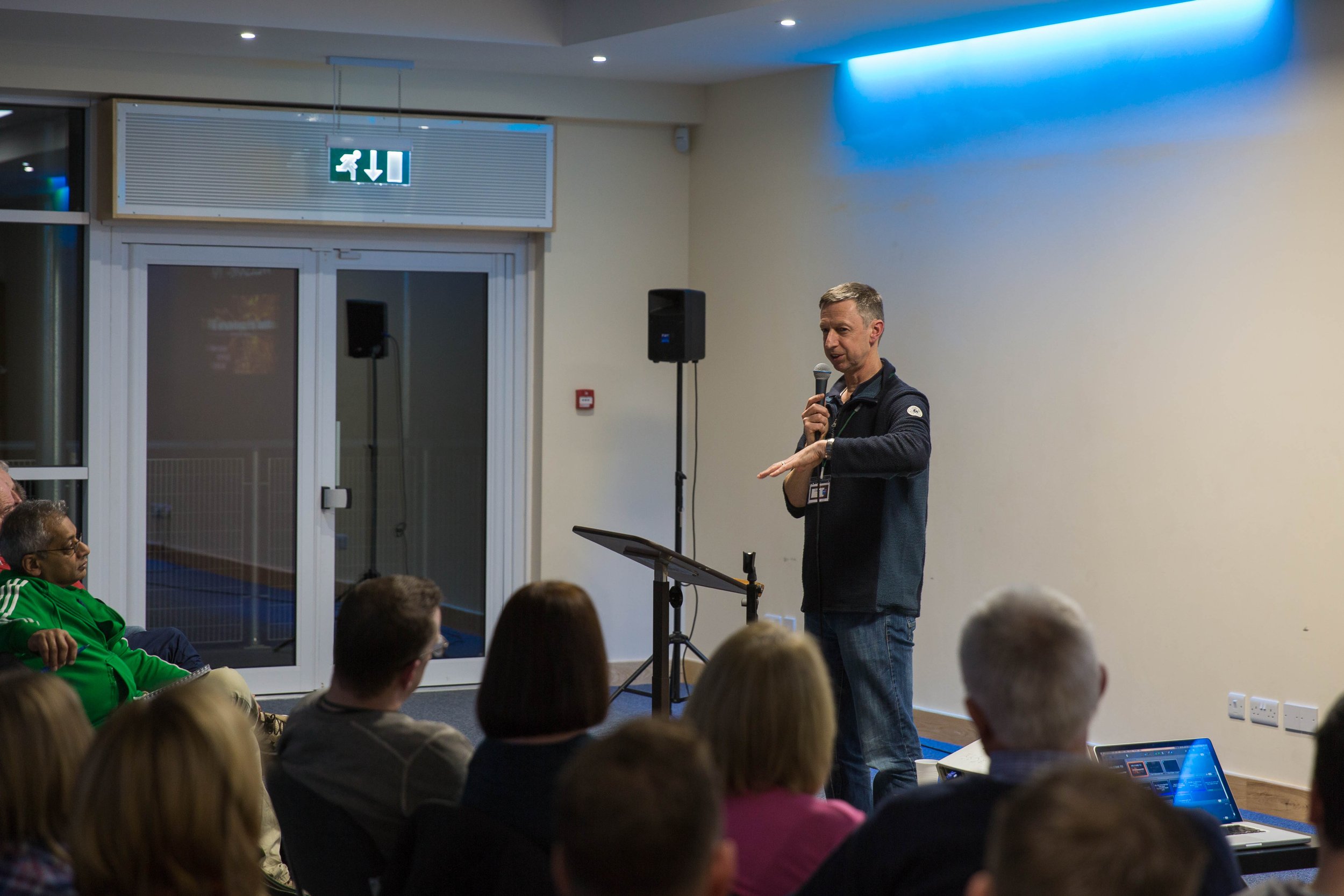
Our Vision & Values
A community that loves God, loves people and makes disciples of all nations
Community is being family together, and all are welcome. We love God and take every opportunity to encourage everyone to encounter him and experience his love for themselves. We love people too, and do everything we can to encourage them to be all God created them to be.
‘Be devoted to one another in love. Honour one another above yourselves.’ (Romans 12:10)
Honouring
God is worthy of all praise and honour. We are made in his image and so we can find things in every person that we can honour. By paying the price for our lives on the cross, Jesus has assigned eternal value to each life. Honour is not based on how well we perform or how good we are, but on the supreme truth that God has placed his glory inside us through Jesus Christ, his Son.
Jesus modelled honour in the way he treated those who were not respected in the culture of his time on Earth. He called out to Zacchaeus, a tax collector, and invited himself to his home for a meal (Luke 19:1–10). He interacted with the Samaritan woman at the well, asking for a drink and then revealing his true identity to her (John 4:1–26).
As we aim to be like Jesus, we seek to recognise, protect and uphold the intrinsic value of each person in our behaviour towards them. Treating people with honour levels the playing field – all are of equally high value. Honour goes beyond respect; it is about loving people for who they are.
A culture of honour enables and empowers everyone, providing opportunities for all to fulfil their potential. It helps to develop trustworthy, confident, courageous, kind, joyful, peaceful people who know who they are in Christ, and who choose to use their gifts and skills to build up other people.
Watch the Bible Project’s overview of the book of Luke. This gospel emphasises the upside-down nature of God’s kingdom where the poor, the humble and outcasts of society are elevated to positions of honour.
Watch the Bible Project’s overview of the Book of Luke
‘Fear not, for I am with you; be not dismayed, for I am your God; I will strengthen you, I will help you, I will uphold you with my righteous right hand.’ (Isaiah 41:10, ESV)
Courageous
It may be strange to think of God as courageous, but we see this aspect of God’s nature when we look at the life of Jesus. Nothing was more courageous than Jesus coming to Earth in human form to give his life for our wrongdoing. He knew what was ahead of him – the betrayal, the physical pain, the agony of being separated from Father God – but he faced his destiny with unparalleled courage.
He modelled courage in other ways too. When he reads from Isaiah 61:1–2 in the synagogue (Luke 4:17) Jesus courageously aligns himself with Israel’s prophetic traditions and claimed divine authority for instituting much-needed change in the temple and among the people. His actions were courageous, as he overturned the tables and seats of those who had compromised holy things (John 2:13-17). He was not afraid to make a stand against those who put religious rules ahead of compassion, for example in his encounters with the woman caught in adultery (John 8:1-11) and the Samaritan woman at the well (John 4:1–42).
We are now called to be courageous in responding to his instruction to go into all the world and make disciples. Also he instructed us, as recorded in Matthew 10:8, to ‘Heal those who are ill, raise the dead, cleanse those who have leprosy, drive out demons. Freely you have received; freely give.’
Courage is an essential quality when it comes to seeing kingdom breakthrough in our lives and in the lives of those with whom we share our faith. We believe that God’s perfect love casts out fear and enables us to be bold and unashamed about who we are. We live courageously because God partners with us in all we do for him. He is calling courage out of us, and we dare to believe the promise spoken to Gideon applies to us too: ‘The Lord is with you, mighty warrior’ (Judges 6:12).
Courage will look different for each of us, but living courageously means we are prepared to take risks to obey God. It is how faith matures and proves itself genuine. We are called to be courageous in every area of our lives and service of God. This could include sharing a testimony at a church meeting, welcoming newcomers, responding to the Holy Spirit, sharing our faith with a colleague or neighbour, declaring healing, moving in a spiritual gift or forgiving someone who has hurt us and seeking reconciliation with them.
Generous
‘All the believers were together and had everything in common. They sold property and possessions to give to anyone who had need.’ (Acts 2:44–45)
Our God is a good Father who is generous to his children. James 1:17 tells us that every good gift comes from God. He gave us the world we live in and each other for company and community. He gave us his Son Jesus and the Holy Spirit. He gives us gifts and supplies our daily needs. He provides resources and meets our physical, emotional and spiritual needs.
Jesus demonstrated his generosity by always giving people more than they hoped for. The lame man received restored mobility and a relationship with God (John 5:1–14). The haemorrhaging woman was healed in body and restored to dignity in community (Matthew 9:20–22). When he fed the 5,000, there were basketfuls of food to spare (Matthew 14:13–21). At another meal, Jesus not only acted as Passover host but took the role of household slave and washed the disciples’ dirty feet (John 13:2–17).
God’s generosity stems from his love for us and our lifestyle of generosity flows from a desire to share what we have experienced with others. We can never out give God but we can give without expectation of return or concern for the cost to ourselves.
We are called to be good stewards of all that God gives us: our money, time, energy, resources, skills and gifts. This is not to seek personal gain, even though we know that generosity invites further blessings (Malachi 3:10).
The widow who gave to God all the money she had to live on is honoured by Jesus in the Gospels for all time, becoming a model to us all. We seek to be servant-hearted and hospitable to everyone, looking to do our utmost to love God and other people. Generosity unlocks potential.
Watch the Bible Project’s video on generosity
Compassionate
‘Be merciful, just as your Father is merciful.’ (Luke 6:36)
God is a compassionate Father to us. He reveals his compassion in many ways, and particularly through Jesus. The ultimate act of compassion is written about in John 3:16: ‘For God so loved the world that he gave his one and only Son, that whoever believes in him shall not perish but have eternal life.’
Jesus’ ministry on Earth was particularly characterised by his mission to the socially and economically disadvantaged, the sick and the oppressed (Luke 4:18). There are many examples in the Bible. In John 8:1–11 we read that Jesus refused to be drawn into the condemnation of a woman caught in adultery. Instead he turns the tables on her accusers and when they have drifted away he tells the woman that he does not condemn her and instructs her to not sin again.
As people who, through mercy, have been united with Christ, we are called to be like-minded in our tender and compassionate treatment of others (Philippians 2:1–2). Scripture contains many commands to believers to ‘remember the poor’ in both the Old and New Testaments (Proverbs 14:31, Galatians 2:10, Isaiah 58:6-7). Knowing how Jesus welcomed the poor, the compassion of our church can be measured by our care for the least, the last and the lost. In the words of the Lord’s Prayer we ask not only for our own forgiveness but we forgive those who have sinned against us (Matthew 6:9–13).
We encourage everyone to model a lifestyle of sacrificial compassionate love. This will lead us to the most needy, hurting, marginalised people in society to give them help, hope and a voice. It is sacrificial because true compassion comes with a cost to our hearts, our time, our finances. It also comes with reward because when the least in our society are given a special welcome by the church they taste the goodness of God through the actions of his people and experience inclusion in a caring community. This often leads to them becoming more open and available to them responding spiritually to Jesus’ love.
